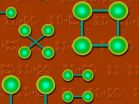(Press-News.org) A subgroup of adults with attention-deficit hyperactivity disorder (ADHD) also exhibit excessive emotional reactions to everyday occurrences, and this combination of ADHD and emotional reactivity appears to run in families. A study from a Massachusetts General Hospital (MGH)-based research team finds that siblings of individuals with both ADHD and deficient emotional self-regulation (DESR) had a significantly greater risk of having both conditions than did siblings of those with ADHD alone. The study, which will appear in the American Journal of Psychiatry, has received early online release.
"Our research offers strong evidence that heritable factors influence how we control our emotions," says Craig Surman, MD, of the MGH Pediatric Psychopharmacology and Adult ADHD Program, the study's lead author. "Emotion – like capacities such as the ability to pay attention or control physical movement – is probably under forms of brain control that we are just beginning to understand. Our findings also indicate that ADHD doesn't just impact things like reading, listening and getting the bills paid on time; it also can impact how people regulate themselves more broadly, including their emotional expression."
Along with the classic ADHD symptoms of trouble paying attention, excessive physical activity and poor impulse control, many individuals with ADHD display high levels of anger, frustration and impatience. In contrast to mood disorders, which are characterized by the persistence of specific emotions and behaviors, DESR involves emotional expressions that are brief and occur in reaction to situations that would be expected to produce similar but much less extreme responses in most individuals. For example, an individual who consistently reacts to minor disappointments by snapping at family members or co-workers or who displays great distress in response to small inconveniences may have DESR.
While some investigators have proposed that poor emotional control be included among the defining symptoms of ADHD, previous studies have not clarified whether the two conditions are separate conditions that appear together by chance or if they are related. Also previously unknown was whether DESR is transmitted among family members, something that is well known to be the case for ADHD.
The current study began with a group of 83 participants – 23 with ADHD alone, 27 with ADHD plus DESR, and 33 comparison participants with neither condition – and then enrolled one or more siblings of each of the original participants. Researchers conducted standardized diagnostic interviews with all participants to determine whether they met the criteria for ADHD and other mental health conditions. Diagnoses were confirmed by expert clinicians who were blinded to participants' diagnoses or their sibling status. Participants also reported their current frequency of DESR-associated symptoms and were determined to have DESR if their control of emotional reactions was worse than that of 95 percent of a large group of individuals without ADHD, which included the comparison sample in this study.
As expected, ADHD was more common, in the siblings of original participants with ADHD than in the comparison group. However, co-occurrence of both ADHD and DESR was found almost exclusively among siblings of the original participants who reported both conditions.
"Other research that we and another group have conducted found that individuals with ADHD who also display emotional overreaction have a reduced quality of life and difficulties with personal relationships and social success," Surman says. "Studies have shown that 4 percent of the adult population has ADHD, and this investigation is part of a larger study that found DESR in more than half of the enrolled adults with ADHD, suggesting that roughly 5 million adults in the U.S. may have the combination of ADHD and poor emotional control."
He adds, "Increased recognition of emotional dysregulation, its frequency in adults with ADHD and the potential consequences of both conditions will help people get support for these challenges. Future research needs to examine both medication- and non-medication-based therapies and improve our understanding of who could benefit from these therapies." Surman is an instructor in Psychiatry at Harvard Medical School.
INFORMATION:
Additional co-authors of the American Journal of Psychiatry article are Joseph Biederman, MD, Thomas Spencer, MD, Dayna Yorks, Carolyn Miller and Carter Petty of the MGH Pediatric Psychopharmacology and Adult ADHD Program; and Stephen Faraone, PhD, SUNY Upstate Medical Center, Syracuse, New York. The study was supported by grants from the National Institutes of Health and Shire Pharmaceuticals.
Celebrating the 200th anniversary of its founding in 1811, Massachusetts General Hospital (www.massgeneral.org) is the original and largest teaching hospital of Harvard Medical School. MGH conducts the largest hospital-based research program in the United States, with an annual research budget of nearly $700 million and major research centers in AIDS, cardiovascular research, cancer, computational and integrative biology, cutaneous biology, human genetics, medical imaging, neurodegenerative disorders, regenerative medicine, reproductive biology, systems biology, transplantation biology and photomedicine.
END
Familiar blueberries and their lesser-known wild relatives are safeguarded by U.S. Department of Agriculture (USDA) scientists and curators at America's official blueberry genebank. The plants, collected from throughout the United States and more than two dozen foreign countries, are growing at the USDA Agricultural Research Service National Clonal Germplasm Repository in Corvallis, Ore.
The blueberries are maintained as outdoor plants, potted greenhouse and screenhouse specimens, tissue culture plantlets, or as seeds, according to research leader Kim E. Hummer.
The ...
This release is available in French.
Montreal May 5, 2011 – Children whose mother or father is affected by bipolar disorder may need to keep their stress levels in check. A new international study, led by Concordia University, suggests the stress hormone cortisol is a key player in the mood disorder. The findings published in Psychological Medicine, are the first to show that cortisol is elevated more readily in these children in response to the stressors of normal everyday life.
"Previous research has shown that children of parents with bipolar disorder are four times ...
WASHINGTON -- How can some people respond to a question without answering the question, yet satisfy their listeners? This skill of "artful dodging" and how to better detect it are explored in an article published by the American Psychological Association.
People typically judge a speaker with the goal of forming an opinion of the speaker, which can make them susceptible to dodges, according to the study published online in the Journal of Experimental Psychology: Applied. Limited attention capacity is another reason people fall for dodges, said the authors, citing a previous ...
A Swedish research team partly consisting of researchers from Uppsala University followed a group of prostate cancer patients in the Nordic region for 15 years. The study found, among other things, that surgery reduces the risk that men with prostate cancer (even those with low-risk tumours) will die within 15 years. The results were published today in the New England Journal of Medicine.
The researchers followed Swedish, Finnish and Icelandic prostate cancer patients. Radical prostatectomy (surgical removal of the prostate gland) was performed on 347 randomly chosen ...
Researchers from the Vienna Center for Quantum Science and Technology at the University of Vienna and the Institute of Quantum Optics and Quantum Information at the Austrian Academy of Sciences used a quantum mechanical system in the laboratory to simulate complex many-body systems. This experiment, which is published in Nature Physics, promises future quantum simulators enormous potential insights into unknown quantum phenomena.
Already the behavior of relatively small quantum systems cannot be calculated because quantum states contain much more information than their ...
CHAPEL HILL, N.C. – Researchers at the University of North Carolina at Chapel Hill School of Medicine, after isolating normal stem cells that form the developing placenta, have given them the same properties of stem cells associated with an aggressive type of breast cancer.
The scientific first opens the door for developing novel targeted therapies aimed at triple negative breast cancer. Known also as TNBC, this is a highly recurrent tumor that spreads aggressively beyond its original site in the breast and carries a poor prognosis for patients who have it.
The study ...
An international team of researchers co-led by a University of Minnesota scientist has sequenced the genomes of two fungal pathogens -- one that threatens global wheat supplies and another that limits production of a tree crop valued as a future source for biofuel.
The sequencing of the genetic codes of wheat stem rust pathogen (Puccinia graminis) and poplar leaf rust pathogen (Melampsora larici-populina) is expected to help researchers develop control strategies to address worldwide threats to wheat fields and tree plantations. The study, which was published this week ...
Know thyself. That was Socrates' advice, and it squares with conventional wisdom. "It's a natural tendency to think we know ourselves better than others do," says Washington University in St. Louis assistant professor Simine Vazire.
But a new article by Vazire and her colleague Erika N. Carlson reviews the research and suggests an addendum to the philosopher's edict: Ask a friend. "There are aspects of personality that others know about us that we don't know ourselves, and vice-versa," says Vazire. "To get a complete picture of a personality, you need both perspectives." ...
As the use of biotechnology increases and more companies move forward with the U.S. Environmental Protection Agency's approval to begin full-scale commercialization of seed mixtures in transgenic insecticidal corn, many researchers believe pest monitoring will become even more difficult.
"Seed mixtures may make insect resistance management (IRM) risky because of larval behavior and greater adoption of insecticidal corn," said David Onstad, professor in the Department of Crop Sciences at the University of Illinois and lead author in a recent article published in the Journal ...
AUSTIN, Texas—Computer networks that can't forget fast enough can show symptoms of a kind of virtual schizophrenia, giving researchers further clues to the inner workings of schizophrenic brains, researchers at The University of Texas at Austin and Yale University have found.
The researchers used a virtual computer model, or "neural network," to simulate the excessive release of dopamine in the brain. They found that the network recalled memories in a distinctly schizophrenic-like fashion.
Their results were published in April in Biological Psychiatry.
"The hypothesis ...

